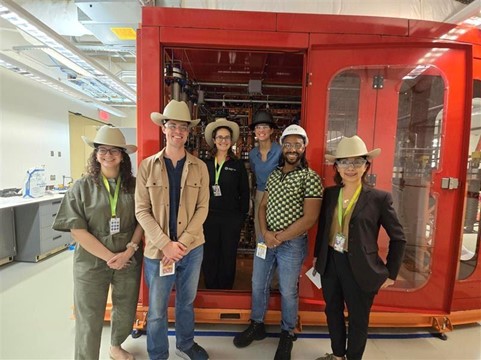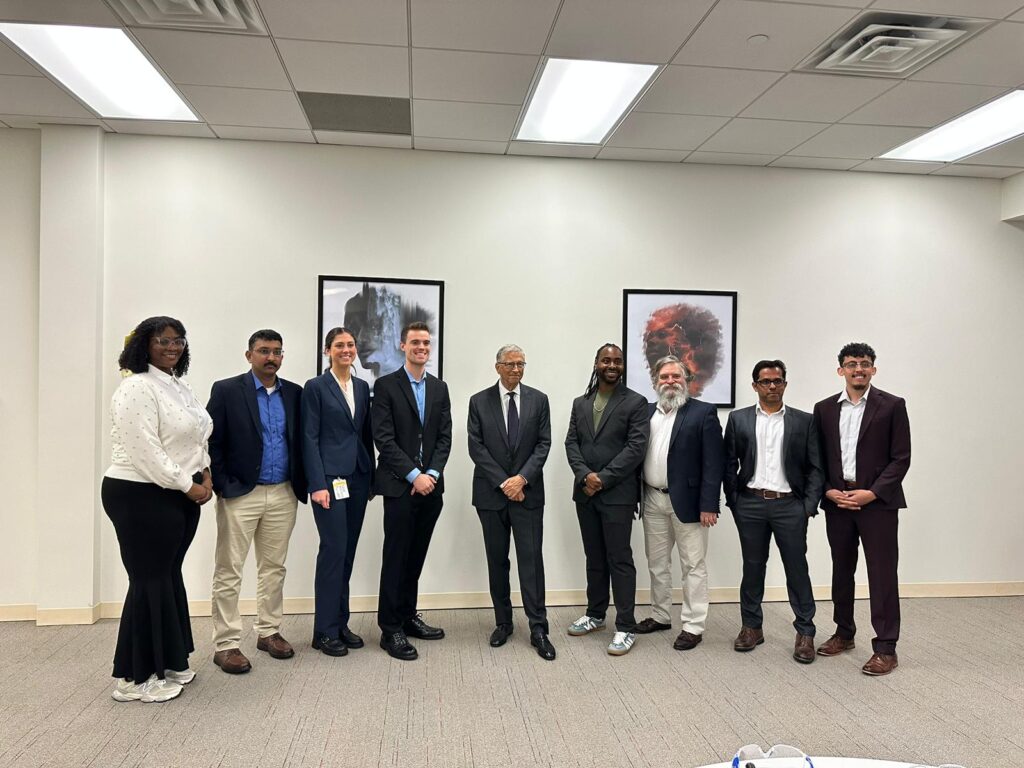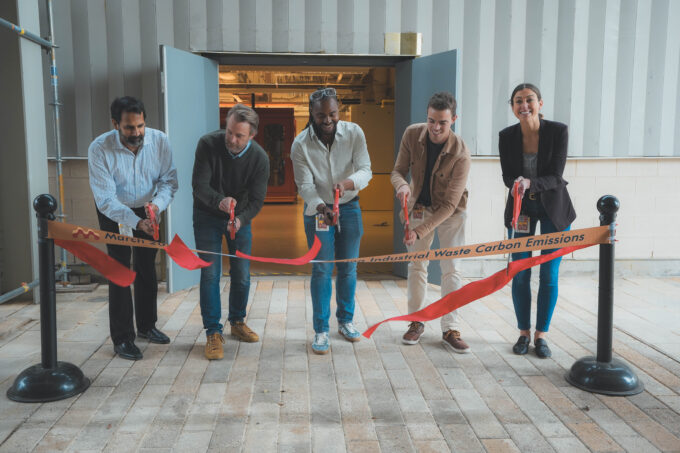You may have never heard of the chemical acrylonitrile, but it’s likely in many objects you use every day—from computer keyboards, to car dashboards, to pickleball paddles.
Acrylonitrile powers a $13B+ industry and poses a significant climate challenge, as the substance is made from petrochemicals and creates toxic byproducts. Every person uses one kilogram of acrylonitrile in products annually, corresponding to three to 10 kilograms in CO2 equivalent emissions depending on where the chemical is produced.
Mars Materials is disrupting this market with a captured-carbon-based acrylonitrile that serves as a drop-in replacement for the traditional chemical.
“We need this molecule; it’s really useful for our modern world,” says Mars Materials’ CEO and Co-founder Aaron Fitzgerald. “And Mars Materials’ process is the only commercially validated, carbon-negative approach for acrylonitrile production.”
The Greentown Labs member’s climate impact is three-fold. First, it’s utilizing captured CO2, projecting to store 35 million metric tons by 2050. Second, it’s capable of replacing petrochemical-based acrylonitrile in countless products and in processes including wastewater treatment and paper-pulp manufacturing. Third, it’s creating a sustainable replacement for other problematic materials—acrylonitrile is the sole feedstock for carbon fiber, a hugely useful substance that can serve as a substitute for steel and other materials.
“The biggest impact for us comes in the products that we’re targeting downstream,” Fitzgerald says. “Enabling the widespread proliferation of carbon fiber is a large part of our vision. You can leverage carbon fiber in various applications as a replacement for steel—think in transmission lines, in hydrogen-storage tanks—and these have gigaton-scale impact potentials.”
Mars Materials is starting its mission—of “turning everyday products into carbon sinks,” Fitzgerald explains—in the chemical-processing space, specifically in the $1.5B and fast-growing acrylamide market. Acrylamide is used for flocculants in water treatment and paper-pulp manufacturing, as well as in slickening agents, adhesives, and coatings.
Mars Materials is working closely with three of the four major acrylamide manufacturers on supplier validation and has received letters of support from them, according to Fitzgerald. Mars Materials has finished fabrication of its pilot reactor unit—a project funded by Bill Gates’ Breakthrough Energy—and is now beginning commissioning to produce a kilogram per day of its purified material. Mars Materials recently opened its piloting lab at the Shell Technology Center Houston and hosted Gates for a tour of the space. The eight-person startup is also raising its seed funding; interested investors can get in touch here.

The Mars Materials team with Breakthrough Energy Fellows at Mars’ pilot reactor site, located at Greentown partner Shell’s Technology Center Houston (STCH).
Fitzgerald’s commitment to climate solutions began on a trip to help rebuild after Hurricane Katrina.
“I witnessed the devastating impacts of climate change firsthand,” he says. “It was over a year after the hurricane, and the folks we were helping still had water in their homes. I got to see what it meant to be a climate refugee and how this would impact people who had very similar backgrounds to me—people of color and from low-income backgrounds.”
He went on to work in politics, found two software startups, and join a methane-leak-detection startup, and ultimately vetted potential technologies to commercialize during a Carbon180 fellowship. During that fellowship, Fitzgerald and his co-founder Kristian Gubsch evaluated 18 different process technologies from the national lab system before selecting the solution behind Mars Materials, which was developed at the National Renewable Energy Laboratory.
Mars Materials participated in the inaugural year of the Carbon to Value Initiative—a unique partnership among the Urban Future Lab at NYU Tandon School of Engineering, Greentown, and Fraunhofer USA to catalyze the carbontech ecosystem—in 2021, and then rejoined Greentown as a member in 2023.
“Half our investors for our oversubscribed pre-seed in 2022 came from the Deal Flow Digest,” Fitzgerald says, referencing a publication from Greentown’s Investor Program that seeks to connect investors with members who are fundraising. “We were fortunate to get part of our pilot lab set up here at Greentown Houston before moving our lab operations to Shell’s Technology Center Houston. Working at Greentown Houston enabled us to unblock our experimental roadmap. And the community members here are experts in their domains and have helped when we’ve needed spare parts or to connect with electricians and other industry stakeholders. It’s been a really great community to join.”

The Mars team during a visit from Bill Gates of Breakthrough Energy at Mars’ office at Shell Technology Center Houston.


